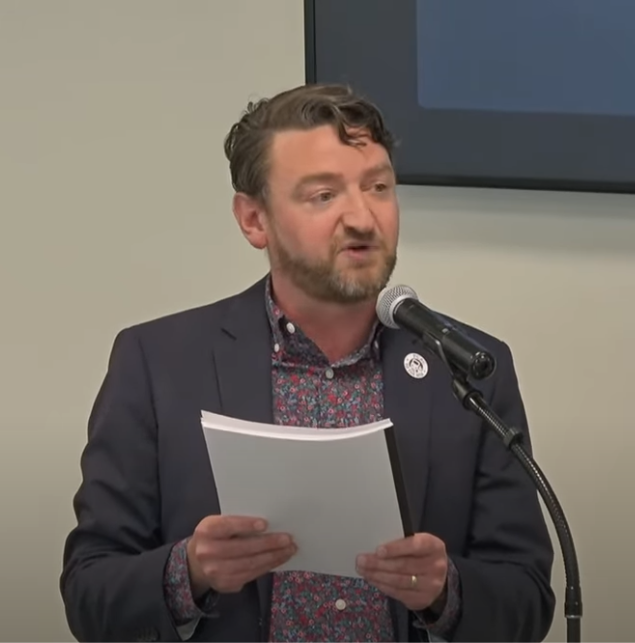Good morning, I’m Brian Fritsch, Associate Director of the Permanent Citizens Advisory Committee to the MTA, PCAC.
Over forty years ago, then-Chair Richard Ravitch introduced the first-ever MTA Capital Program to save regional transit from the brink of collapse. Around the same time, he also helped found PCAC, to ensure riders always have a seat at the table when it comes to evaluating these plans and ensuring rider needs are first in line.
The resubmission of the 2025-29 Capital Plan makes it clear the agency has charted a course that puts reliability for riders at the top of the priority list. Getting ahead of the decay curve on power, structures, and maintenance facilities isn’t sexy, but it’s absolutely essential to getting us where we need to go.
That’s why we applauded the Governor and State Legislature for coming together with a clear funding strategy that keeps the plan intact. There is little fat to trim, and the agency is making progress reducing costs and delivering projects on time. Yet, we remain concerned about certain aspects of the program’s funding, which could impact the plan down the line.
Specifically, the $14 billion in federal funding, which is dependent on a fraught reauthorization process in Congress next year. We must ensure that transportation funding levels remain steady, and transit continues to get its share (albeit not really fair share at an 80 to 20 split) of new revenues.
We look forward to learning more about how the $1.4 billion of new PMT revenues will bond to fill the $34 billion hole without overburdening the agency’s debt obligations or impairing future capital plans.
Finally, we are eager to hear how the agency will find additional savings for the $3 billion it is contributing to plan, without sacrificing needed projects, reducing their scopes, or swapping long-term solutions for piecemeal ones.
We’ve cleared a lot of hurdles for capital funding over the past few months and years, giving us the resources necessary for a transit system New Yorkers can rely on. But in many ways the hard part begins now, and we all know unexpected pauses can and do happen. Let’s ensure the needs of riders always come first.
Back to All
Capital Plan Testimony- Putting Riders First in the Fully Funded 2025-29 MTA Capital Plan
